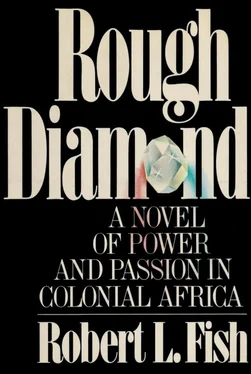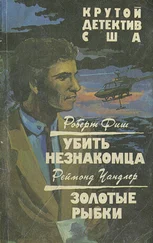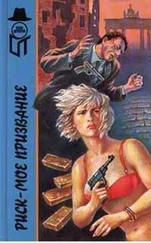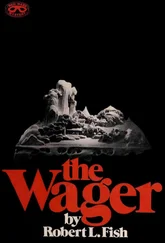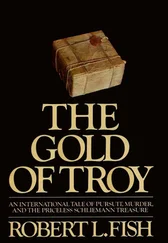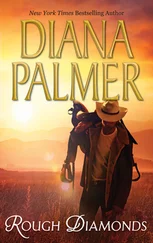“Dignified?” Rhodes shrugged. “You’re a sentimentalist, Charles. There’s no room for sentiment in this business. Illicit diamond dealing can ruin this industry, and you know it. It’s bad enough prices are dropping again in London and Paris without the problem of illicit diamonds on the market. And the only way to stop illicit diamond buying is to make sure there are no illicit diamonds around for the crooked traders to purchase. And to see that the trader gets a good stiff term on the Cape breakwater when he’s caught. And as far as the compounds are concerned, once they’re completed and in operation, the Kaffirs will only be searched once, at the end of their contract, instead of at random as at present, and possibly every day if one of them has bad luck.”
He drank and put his glass down.
“Besides,” he added, “these Kaffirs are animals. I’m sure the searches and the castor oil and everything else doesn’t bother them anywhere near as much as it seems to bother you. Simply realize you are not dealing with civilized men, you’re not dealing with Englishmen. These Kaffirs are animals, merely animals, and treating an animal like an animal is only natural and proper. So don’t let it upset you, Charles. It’s the only way to stop the illicit trading.”
“Except it will only work if all the other diggers go along,” Rudd pointed out. “The question is, will they? Will Baring-Gould at Kimberley; or Robinson at Kimberley? Or Barnato? Or the diggers at Bultfontein and Dutoitspan? There’ll be trouble with the Kaffirs.”
“There’ll be no trouble with the Kaffirs,” Rhodes said confidently. “Especially if everyone puts up compounds like ours. The bloody Bushmen will have no choice. And I’ve already talked to Baring-Gould and Robinson. They thought it a wonderful idea. They agree with me completely. I’ll talk to the others today.”
“Including Barnato?” There was a faintly sardonic smile on Rudd’s face.
“Not including Barnato,” Rhodes said, and there was an equally sardonic smile on his own lips. “You see, Charles, the day we get all the other diggers searching their Kaffirs properly, all the others except Barnato, let us say, then we’ll know fairly certainly from which claims any illicit diamonds are coming, won’t we?”
“And if he puts in compounds like the rest?”
“Then we’ll end the business of illicit diamonds once and for all,” Rhodes said calmly, “and that’s all I’ve been aiming at from the beginning…”
The compounds were low one-story brick buildings laid out in the form of a huge square with one side missing. Each building was divided with interior brick walls into spaces of a size that a tall man standing in the middle of each small room could touch the walls with his outstretched arms. A slot high in the back wall of each cubicle allowed the entrance of a small amount of light while being too small for the smallest man to pass through, even though there still remained a goodly distance between the building and the first of the two parallel fences. An entrance without a proper door gave access from the little cells to the enclosure of the compound itself. Each tiny room contained wooden shelves to accommodate eight men in sleeping.
A cookhouse was located at each end of the compound, and meals were intended to be taken in fingers while sitting on the ground of the open area. An uncanvased latrine was located to one side, a pole across a shallow ditch. The sorting yards where the earth from the mine was left for the rain and the weather to help break down stood between the compounds and the mine itself.
Rhodes, walking about and critically inspecting his partner’s handiwork, nodded in satisfaction. He stared at the high parallel fences topped by barbed wire that circled the compounds and ended at a large watchtower that would be manned by armed guards also equipped with sjamboks later that day when the first of the compounds went into service. In the runway formed by the space between the double fence large fierce-looking dogs already prowled restlessly. Rhodes gave the inner fence a push, as if to test its strength; instantly a large dog came running, baring its teeth and growling. Rhodes smiled and turned to Rudd at his side.
“A quite commendable job, Charles. Congratulations. Some of the other mineowners will be here later today to see what you’ve accomplished and to ask your help in telling them how to duplicate your work.”
“Barnato included?”
“Barnato not included,” Rhodes said, and his smile widened.
In the bar of the Paris Hotel, Barney Barnato was doing his imitation of Cecil John Rhodes.
“Omnibus,” he said in a high, affected falsetto, holding one hand with a limp wrist a bit higher than his shoulder and parading about the barroom with tiny mincing steps, his other wrist folded delicately at his waist. “Offnibus, animus, deadimus, oneimus, twoimus, threeimus. That’s Latin and Greek, you ignoramimus. I mean, ignoramimuses.” He stopped before a laughing man, looking at him sternly. “What are you laughing at, Charles? Being me is no laughing matter!” He paused to draw back with a little scream as an elderly maid came in the barroom to dump a bit of refuse into a pail. “A woman! Help!”
The laughter rose and then was interrupted. An argument had sprung up at one end of the adjoining dining room and the men turned from Barney to see what the fuss was all about. Two men, seated and facing each other at a table covered with their dishes of food, were leaning across the table, shouting at each other, their faces getting red, their voices rising in volume. Suddenly one of them came to his feet, grasped the edge of the table, and upended it, sending the other man to the floor under a deluge of dishes and food. The fallen man came to his feet roaring with rage, picking a knife from the spilled utensils on the floor as he did so. He shoved the upended table out of the way with one heave to give himself room to maneuver. He was a very large man with a full beard; the knife glittered in his huge hand as he handled it expertly. His opponent was a bit smaller but not much, with a rakish mustache and a scar that ran from the comer of his mouth to disappear at the end of a hard-looking jaw. The man with the knife made a quick forward-thrusting move and suddenly found himself flying through the air to crash painfully against a wall, the breath knocked out of him. The mustached man, cursing steadily aloud, his eyes narrowed cruelly in hate, walked over and kicked the knife from the paralyzed hand. He then began to systematically kick the fallen man in the head and sides. One kick broke the man’s nose; blood spurted. Barney hurried over, grabbing the mustached man by the arm.
“Hold it, chum! That’s enough,” he said firmly.
The man turned to meet this new interference, pulling back an arm to swing, but Barney held up a hand warningly. “I’ve no quarrel with you,” he said quietly, his very calmness causing the man to hesitate. “He pulled a knife on you and maybe deserved what he got. But that’s no reason to kick him to death. Come on,” he added in a lighter tone. “Leave him be. I’ll buy you a drink.”
The man on the floor had managed to come to a sitting position. He was holding a rag to his broken nose; it was soaked with blood. “Buy him a drink, eh?” he said thickly, speaking through the blood in his throat. “You don’t know who yer buyin’ a drink for, mister!”
The mustached man, his jaw clenched, turned with a curse and raised his foot to kick his fallen opponent again, but Barney dragged him back. The mustached man stared at the man on the floor a moment, finally shrugged, and followed Barney to the bar. Barney called over the bartender and turned back to the stranger. “What are you drinking?”
Читать дальше
